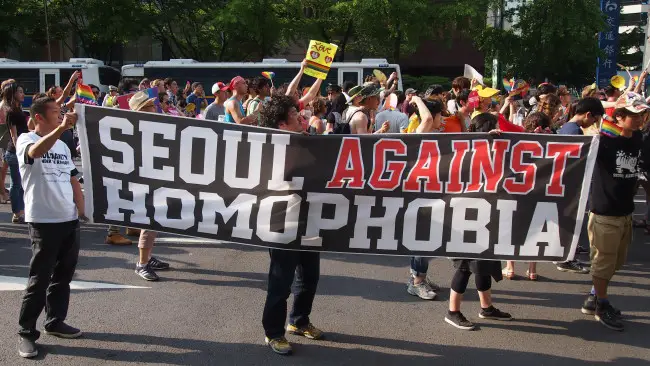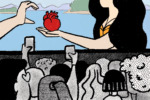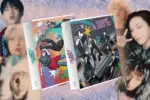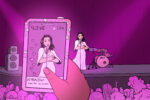When people think of K-pop or Korean music as a whole, certain stereotypes will always persist among those who don’t listen to the genre. Psy, BTS or G-Dragon are most frequently mentioned names in any discussion, along with a comment or two on the absurd number of members in the groups — that’s all people think K-pop has to offer.
Beyond such generalizations, little attention is paid to the intricacies of the niche as a whole, curtailing the behind-the-scene working that will horrify many Westerners with its strict rules, high expectations and drastic measures. In that conservative picture, Holland, a recently debuted soloist, again sparked the conversation about the freedom of expression for artists with his debut video.
A shocking debut
Holland came out with his first single “Neverland” this January, and the response worldwide has been explosive. He trended worldwide on Twitter for several hours on the day of his music video release, proving his impact among international and domestic K-pop fans alike.
As the first openly gay K-pop idol, Holland has been hailed by his followers as well as a select few Korean LGBTQ+ celebrities for rekindling a conversation about freedom of expression and sexuality: not only is he open about his own sexual orientation, but he shares his experiences through his music.
“Neverland,” drawing from Holland’s personal experiences, details the journey of a boy who wants to escape the prejudices he faces and love peacefully. As he shares in an interview, Holland came out about his sexuality to some friends in middle school, only for those friends to break his secret to everyone, which made him the victim of bullying for the rest of his time in school.
During that time, he had no support from his family or friends and no gay public figures existed to validate his struggles. It is because of such hardships that Holland decided he wanted to become a singer that could spread a positive messages to console people who are struggling with their sexuality like he used to. With that determination in mind, Holland created his debut music video about homosexual love despite many obstacles in his way.
The fight does not end there
Because of its commercialized nature, K-pop has a certain rigidity regarding what its performers are allowed to do. Censorship is commonplace among broadcasting networks and the entertainment companies must comply if they want their talent to succeed.
Common measures to ensure compliance of talents include contractually obligated bans on dating and controversial topics of discussion. In an age where fans’ opinions matter more and more, there is a certain mold that a K-pop idol is pressured to fit into and they cannot deviate too far from the expectations placed on them without alienating the public, one of which is the taboo surrounding homosexuality. With that, the public are left to wonder how Holland will survive censorship and, potentially, retribution from such a society that values tradition and stability as Korea.
Though he was able to release his single “Neverland,” Holland will continue to face more challenges as he continues his career. As of now, he has no backing from any agency and has no way of promoting himself in his home country.
He funded his own song and music video production, but cannot perform it on Korean music shows or make TV appearances. This may not mean too much to a Western music fan, who has seen the likes of Chance the Rapper and Lindsey Sterling rise to fame without a record label’s help.
However, breaking into the mainstream South Korean music scene without a major agency’s backing is incredibly difficult. Everyone knows which artists are signed to which companies and what companies are the best in terms of net worth and reputation. With this perspective in mind, it is shocking to think that Holland is venturing into the K-pop world without an agency at all.
A society dictated by conventions
South Korean society is much more socially conservative than most Western countries, which makes Holland’s decision to come out all the more newsworthy. Same sex marriage is very much illegal there, with much of the older generation are still old-fashioned about masculinity and hold prejudiced against homosexuality.
Confucianist age hierarchy that permeates Korean society puts strong emphasis on the social seniority, making the opinion of elders very difficult to challenge. It is the pervasiveness of such a mindset that makes it relatively risky to be an openly gay celebrity in Korea today, and although there is no official rules about coming out to the public, people can only imagine the number of actors and singers are currently closeted. The main ray of hope is in the younger generation, people like Holland, who are growing up to be more informed and tolerant, to change the society with a more accepting attitude.

However, social conventions are not the only obstacles against the success of gay artists like Holland. There exists a sect of young fans who oppose homosexuality among idols for different reasons.
One common practice for K-pop idols is to onstage fan service, anything from blowing fans a kiss to intentional “skinship” with other members of the group. Yet, surprisingly enough, not many Korean people consider such fan service actual indicator of homosexuality. Fans know that it is, on some level, a show being put on and understand the purpose behind such act is to season the performance and excite the crowd.
With that mindset, they eat up these interactions, writing fan fictions that gush about how sinful it all is. Though the existence of such fan fictions is not an issue on its own, there exists a correlation between reading fan fictions involving gay couples and objectifying homosexuality: such fans enjoy fan service, but are dismissing the LGBTQ+ community. Unfortunately, there exists a certain degree of worry that Holland will attract this sort of problematic fanbase, one that likes the idea of a young, good-looking gay boy existing only for their enjoyment.
What is in store for Holland’s future?
Despite all past and future hurdles, Holland was able to make his debut as a gay artist. Though he hasn’t made much of an impression in Korea due to his lack of agency, his international fanbase is growing by the day.
The internet has given him a chance that he would never have had otherwise to reach out to the community beyond his country’s border and bring about social change just as he wished. Yet the question still remains: can a gay K-pop idol not just exist, but also become a positive role model in his or her home country? Only time will tell.
Holland is a little fish in a big pond, but he does have some things going for him as well. His vocals have potential, his debut song “Neverland” has meaningful lyrics and his personality seems to appeal to many.
Best of all, he has the courage to exist authentically in a world that may not accept him, which is the most admirable quality in a person and attracts so many people rooting for him. Best of luck to Holland and his future endeavors. Considering what the future probably has in store for him, he’ll definitely need it.
















